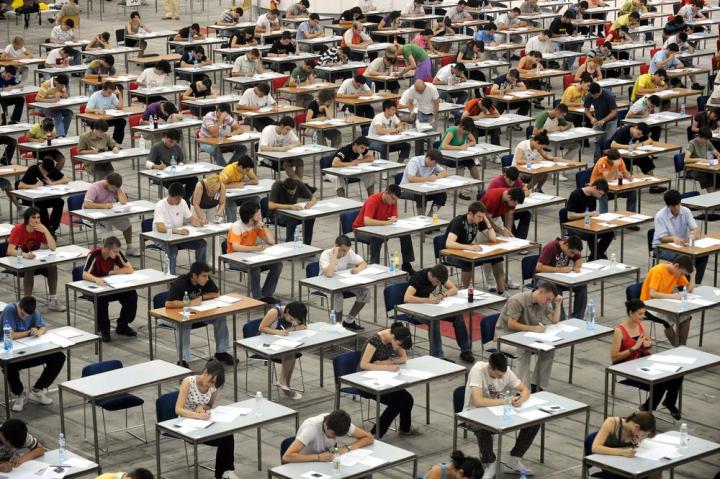
Now’s about the time teenagers across China will be sweating it out as they prepare for what’s become known as “the world’s toughest exam.”
The National College Entrance Exam, more commonly called “the gaokao,” determines access to higher education and is taken annually by up to 10 million students across the country.
The pressure caused by the exam can be enormous, so enormous in fact that some studies have linked the test to student suicides. On top of that, fear of failure has pushed some exam-takers into cheating, a serious issue the authorities appear to have trouble getting on top of, not least because of the increasingly sophisticated methods employed.
Some students have, for example, worn spectacles with tiny cameras that relay images of the question paper to an accomplice outside the exam room. The answers are then fed back to the student via an earpiece.
In an effort to combat this high-tech cheating method, the authorities in Luoyan, a city about 400 miles south of Beijing, have come up with the idea of using quadcopters.
No, they won’t be buzzing about the exam room monitoring student behavior with an attached camera. Instead, the flying machines will be equipped with gear to detect and pinpoint radio signals, enabling exam proctors to catch cheating students in the act.
According to Wired, the quadcopter will hover above the exam room at an altitude of around 500 meters while monitoring for radio signals to a distance of about 1 kilometer.
If it detects a signal, the information is then relayed to a teacher’s tablet. By flying the drone around the general area, that teacher can then use the system’s specially designed app to pinpoint the signal’s source.
It’s not yet known how effective the technology really is, but the authorities will no doubt have made students well aware of its drone-based efforts to catch cheats, perhaps hoping the mere sight of the remotely controlled copter will be enough to persuade students to leave their camera-equipped specs and earpieces at home.


